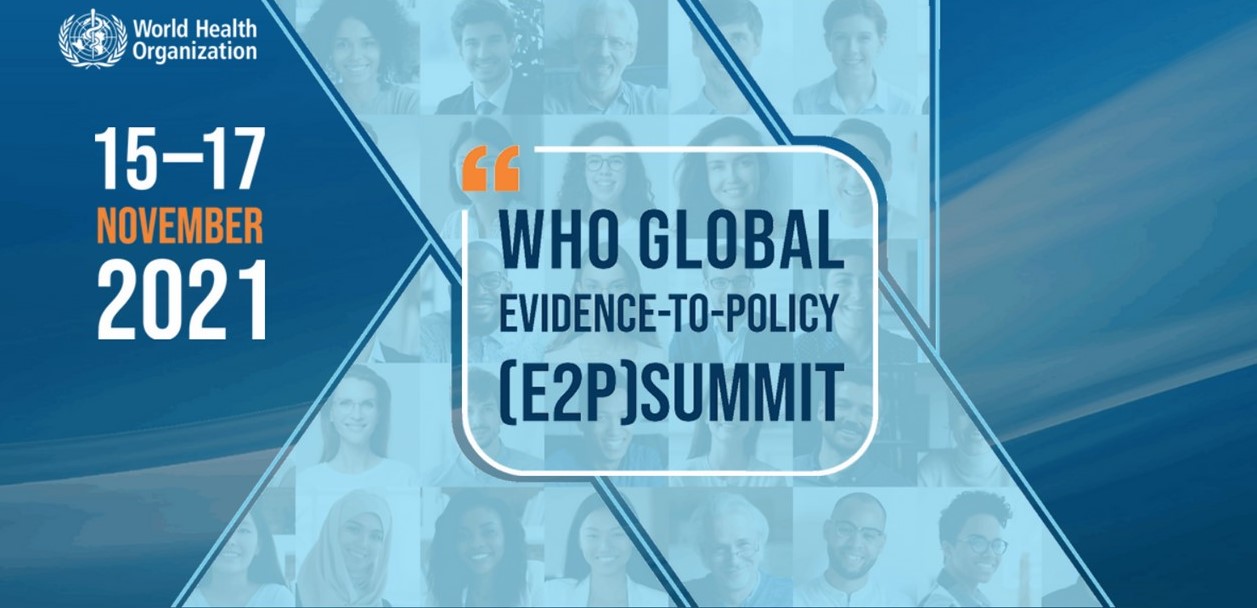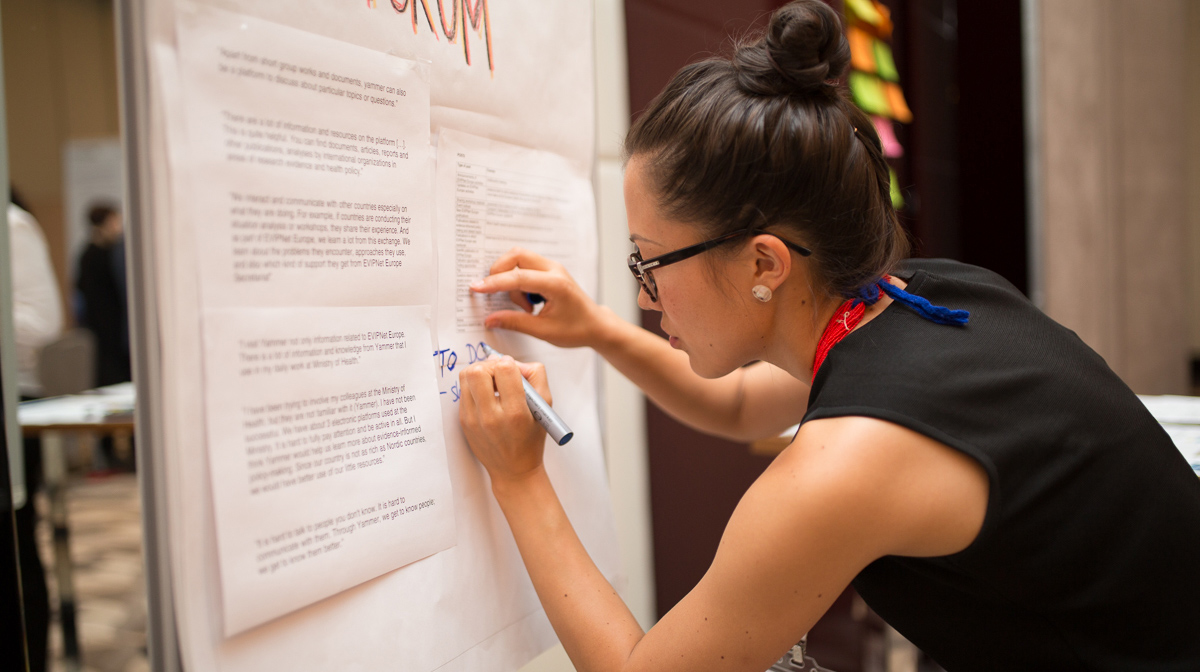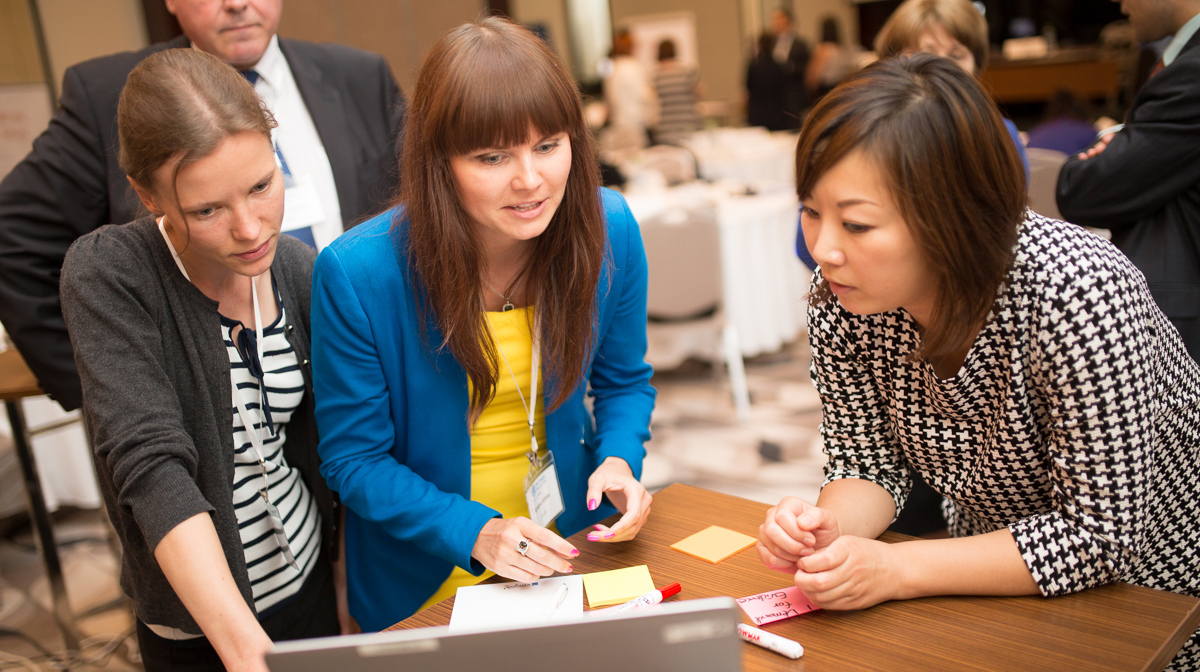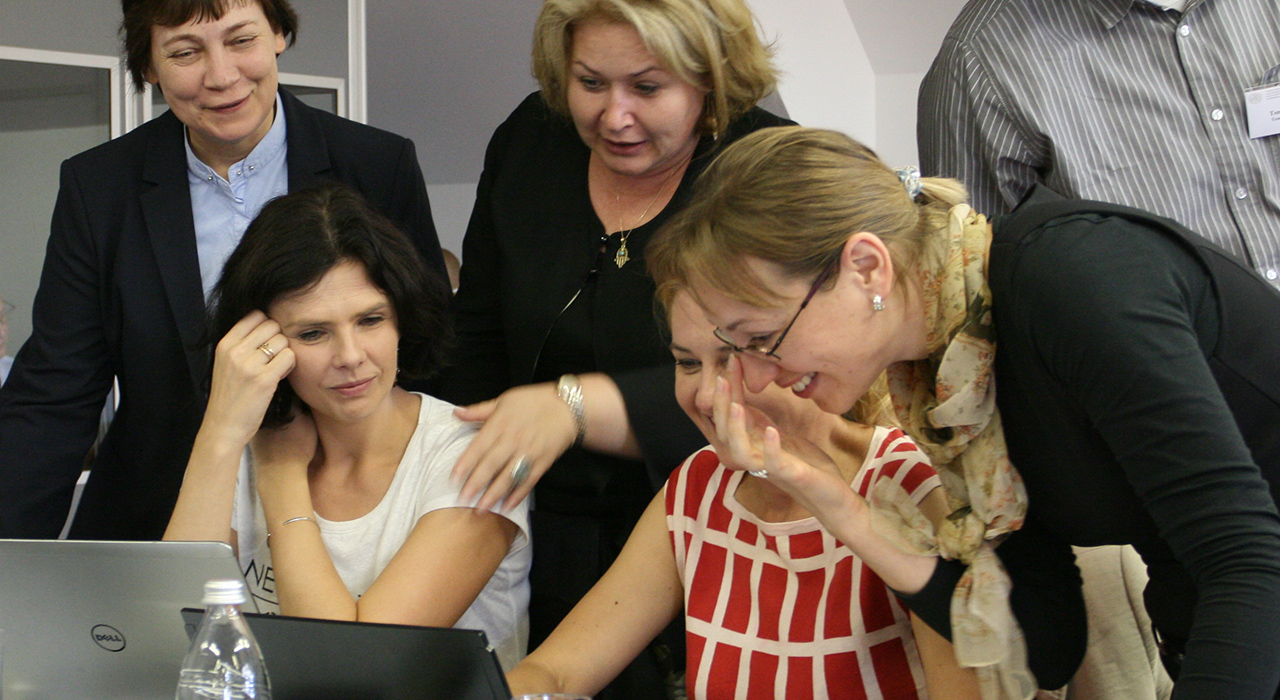
WHO Global Evidence-to-Policy (E2P) Summit 2021
Evidence as a catalyst for policy and societal change: Towards more equitable, resilient, and sustainable global health.
Mobilizing reliable evidence in a global health crisis. Informing safe and effective health policies and programmes. Driving sustainable change towards resilient country capacity and global health equity.
At the WHO Global E2P Summit, global experts and stakeholders met to determine the state and perspectives of evidence-informed health policy- and decision-making beyond the pandemic.
Core Themes:
Evidence-informed health policy beyond the pandemic

Leveraging evidence in a health emergency
During the COVID-19 pandemic, policy-makers, healthcare providers, and research actors faced major challenges in translating a rapidly evolving body of new evidence into tangible response efforts and health policy options. Taking stock of country experiences, the E2P summit capitalized on lessons in evidence-informed policy-making in and beyond global health emergencies.

Strengthening knowledge translation and country resilience
Trust in science and dedicated governance structures for agile knowledge translation processes are crucial for promoting the use of best available evidence and ensure responsive and timely decision-making. At the E2P Summit, experts and global stakeholders explored latest strategies to institutionalize and sustain evidence-informed policy-making at country level.

Joining forces across sectors and evidence workstreams
For evidence to make a difference for patients, communities, policy-makers and practitioners, interdisciplinary collaboration across evidence workstreams and sectors are vital. On the way to achieving WHO's triple billion targets and the Sustainable Development Goals, the E2P Summit offered a steppingstone to spark new collaborations across the evidence ecosystem.
Our Keynote Speakers
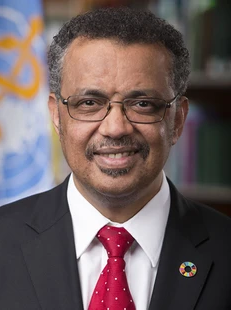
Tedros A. Ghebreyesus
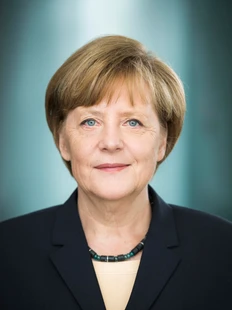
Angela Merkel
Angela Merkel was born in Hamburg on 17 July 1954, but spent most of her childhood in Templin, in Brandenburg, East Germany. After reading physics at Leipzig University (1973 1978), she conducted research into quantum chemistry at the Central Institute of Physical Chemistry at the Academy of Sciences in Berlin. She obtained her doctorate in 1986 with a thesis on calculating the velocity constants for simple hydrocarbon reactions. In late 1989, Angela Merkel joined "Demokratischer Aufbruch" (Democratic New Beginning). She soon became their Press Spokeswoman and then, following the first free elections to the People's Chamber of the then GDR on 18 March 1990, she was appointed Deputy Government Spokeswoman for Lothar de Maizière's Government. She has been a member of the CDU (Christian Democratic Union of Germany) since August 1990, and a member of the German Bundestag, for the constituency of Stralsund, North Western Pomerania and Rügen, since December 1990. From 1991 to 1994 she served as Federal Minister for Women and Youth, subsequently becoming Federal Minister for the Environment, Nature Conservation and Nuclear Safety, a position she held until 1998. From December 1991 until her election as General Secretary of the CDU on 7 November 1998, she held the post of Deputy Chairwoman of the CDU in Germany. She was simultaneously Chairwoman of the Mecklenburg-Western Pomerania CDU from May 1993 to May 2000. She has been Chairwoman of the CDU in Germany from April 2000 to December 2018. She also served as Chairwoman of the CDU/CSU Parliamentary Group in the German Bundestag from September 2002 until she was first elected as Chancellor in November 2005. Since her third re election as Federal Chancellor on 14 March 2018, Angela Merkel has led a government of the CDU/CSU (Christian Democratic Union/Christian Social Union) in coalition with the SPD (Social Democratic Party of Germany).
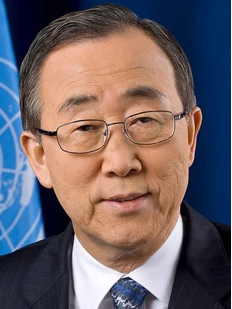
Ban Ki-moon
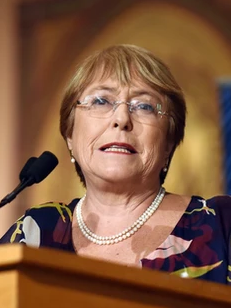
Michelle Bachelet

Soumya Swaminathan
Summit Program
15 November 2021
14:00–14:05 (CET)
14:05–14:15 (CET)
Welcome note by the Director General
14:15–15:00 (CET)
Keynotes on innovating the evidence-policy-nexus
15:00–15:50 (CET)
High-level panel on driving transformative policy and sociatal change
16:15–17:05 (CET)
Global expert panel on knowledge translation after COVID-19
16 November 2021
08:30–11:00 (CET)
WHO SEARO Side event: Knowledge Translation, Management Lessons from COVID-19 research-to-policy
09:00–12:00 (CET)
WHO AFRO Side event: Tackling Health Emergencies and Challenges with Evidence in the Africa Region
09:00–12:00 (CET)
10:00–13:00 (CET)
12:00–13:45 (CET)
Global focus event on institutionalizing and strengthening evidence-informed policy-making
15:00–17:30 (CET)
Global focus event on enhancing collaboration across the evidence ecosystem
18:00–21:00 (CET)
17 November 2021
14:00–14:10 (CET)
Opening & brief reflections on day 2 focus events
14:10–14:15 (CET)
Video highlights from country case studies
14:15–15:30 (CET)
Keynotes and stakeholder panel on evidence, legitimacy, and trust
15:30-15:50 Virtual break
15:50–16:10 (CET)
Launch of the draft EVIPNet Call for Action and partner coalition
16:10–16:40 (CET)
Statements on the draft EVIPNet Call for Action
16:40–17:00 (CET)
Closing remarks
Summit Highlights
At the 2021 WHO Global E2P Summit, global experts and stakeholders met to determine the state and perspectives of evidence-informed health policy- and decision-making beyond the pandemic.
More than 3200 people from 138 countries registered to participate in the Summit, and some 2’500 participants joined one or several sessions of the three-day virtual event. Together with global experts and stakeholders, they discussed how to mobilize reliable evidence in a global health crisis, inform safe and effective health policies and programmes, and driven sustainable change towards resilient country capacity and global health equity.
Discover below the E2P Summit highlights, revisit video recordings and Summit documentation, and join the global EVIPNet Call for Action for evidence-informed decision-making in the post-pandemic era.
EVIPNet Call for Action

Together on the road to evidence-informed decision-making for health in the post-pandemic...
Multimedia
Summit Videos
During COVID-19: a case study
While a health crisis of truly global scale, the COVID-19 pandemic called for different response and knowledge translation strategies in different places. In this video presented at the WHO Global Evidence-to-Policy (E2P) Summit 2021, policy makers, researchers, and knowledge translation specialists from Chile, Brazil, Indonesia, Iran, Kazakhstan, Nigeria, and Norway, and Somalia recount some of the major challenges and successes in supporting an evidence-informed COVID-19-response in their countries.
Summit Documents

Evidence as a catalyst for policy and societal change: towards more equitable, resilient and sustainable...
From 15 to 17 November 2021, the WHO Global Evidence-to-Policy (E2P) Summit – organized by WHO at global, regional and country levels – convened...
WHO Global Evidence-to-Policy (E2P) Summit 2021: Scope & Purpose WHO Global Evidence-to-Policy (E2P) Summit 2021: Scope & Purpose
WHO Global Evidence-to-Policy (E2P) Summit 2021: Agenda WHO Global Evidence-to-Policy (E2P) Summit 2021: Agenda
WHO Global Evidence-to-Policy (E2P) Summit 2021: Overview WHO Global Evidence-to-Policy (E2P) Summit 2021: Overview
Mobilizing evidence in health emergencies: Working hand in hand to balance response speed with safe and effective policies Mobilizing evidence in health emergencies: Working hand in hand to balance response speed with safe and effective policies
The network behind the Summit
Get to Know EVIPNet
Evidence. Knowledge Translation. Impact
With over a decade of successful knowledge translation initiatives in more than 50 countries, EVIPNet supports member countries in working towards safe and cost-effective health interventions through systematic use of the best-available evidence and participatory decision-making processes.
A Glance back stage
The people behind the Summit
Scientific Advisory Committee
A multi-sectoral group of research and evidence-to-policy experts with representatives from all WHO regions provided thematic advice and strategic support to the organization of the WHO Global E2P Summit.
Executive Committee
A team of WHO headquarters and regional office staff and EVIPNet country team jointly worked on planning and programming of the WHO Global E2P Summit and all regional events.
WHO Secretariat: The Evidence to Policy and Impact Unit
WHO’s Evidence to Policy and Impact Unit led the organization of the WHO Global E2P Summit within the Organization and coordinated the work of the scientific advisory and executive committees.
Resources
Related links
Contact
World Health Organization Evidence Informed Policy Network
20, Avenue Appia
CH-1211 Geneva
27
Switzerland
Email: evipnet@who.int

